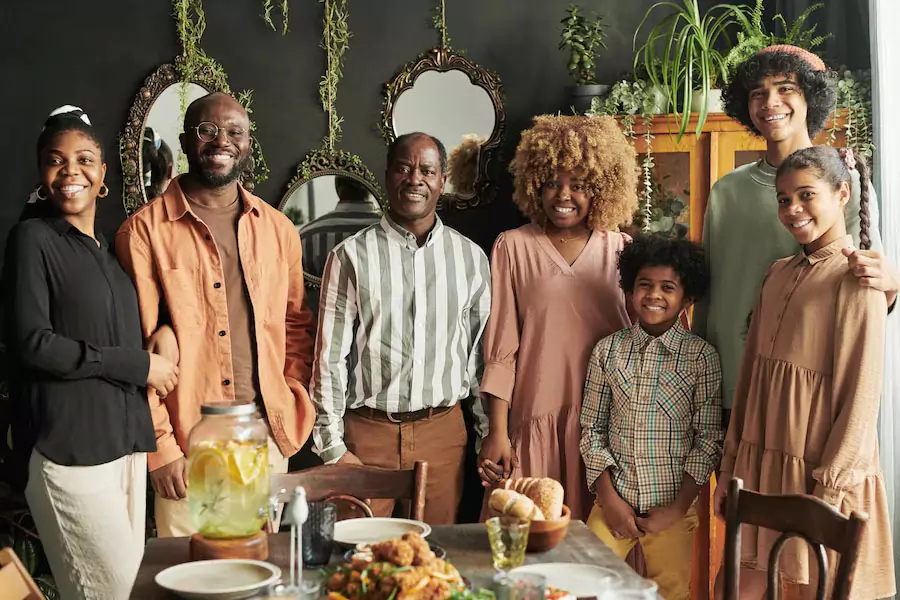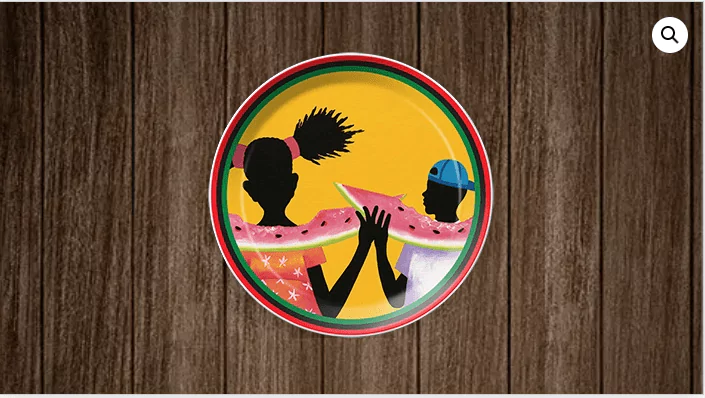Schedule Appointment
Schedule Appointment

Few experiences are as festive, significant, and culturally significant as the African American family reunion. These multi-generational affairs are not merely weekend outings or barbecues—they are ancient traditions imbued with history, love, and resilience. Reunions are a space to reconnect, remember, and reinforce generational connections.

African American family reunions are powerful representations of being together in laughter, food, stories, and sometimes tears. They are occasions where the past and the future meet. Artistic creations such as the Summer’s Dreams – Ice Cold Watermelon plates, Emancipation plates, and Friday Night’s Card Game plates reflect these rich experiences, depicting vivid pictures of happiness, heritage, and culture.
If you are going to grasp the Black family reunion, you must understand the history of separation. Families were split up during slavery—sold to other plantations and dispersed by distance and regulation. After the end of slavery, African Americans set out to find their lost families. They searched, traveled, and wrote letters, keeping hope alive.
The experience of being apart in the past fostered a great desire to be reunited, visit each other, and maintain family relationships. The Emancipation plates symbolize that critical moment—when freedom was proclaimed, but fully reuniting families remained long. These special plates tend to be joyful, yet they remind us of history, demonstrating that coming back is standing up and displaying love.
Modern-day African American family reunions usually occur during summer, a heating season representing beginnings. Parks, rented halls, family residences, and beaches become special places with loved ones and memories. People proudly wear matching T-shirts with family names or photos. Older family members are respected, children are presented, and memories are created.

The Summer’s Dreams: Ice-Cold Watermelon plates capture the happiness of summer. They capture children with sticky hands and adults under the sun eating watermelon, with all of them laughing. These pictures are pleasing and capture comfort, simplicity, and the fruit of labor.
No family reunion is complete without food—and plenty of it. The buffet typically stands for decades of soul food tradition: fried chicken, ribs, mac and cheese, greens, cornbread, potato salad, and, of course, sweet desserts such as peach cobbler or red velvet cake.
All meals have a background. Recipes get passed down, occasionally concealed as treasure. Culinary preparation is a shared activity—an exercise in preserving memory. It is through these flavors that culture gets preserved. Watermelon, occasionally stereotyped unjustly, is again savored in groups as a sweet, festive snack, re-made special by its setting and the company it is being shared with—as illustrated in the Summer’s Dreams series.
Grandparents are central characters in family reunions. They bring the past to life—talking about migrating, times of hardship, survival, and triumph. Younger relatives sit with wide eyes as grandparents tell them what it was like to come of age in the Jim Crow South, to migrate north during the Great Migration, or to serve in segregated military units. This is more than entertainment—learning, legacy, and healing. These Emancipation plates represent this memory transfer: freedom, hard-won; stories, hard-held.
As children dash through sprinklers and adults lounge in lawn chairs, a section of the reunion is buzzing with competitive spirit—the card tables. Spades, bid whist, or dominoes, these games are not merely activities. They are traditions replete with teasing, strategy, and laughter.
Friday Night’s Card Game plates depict this moment: four people seated at a folding table, cards in hand and grinning, with onlookers watching and drinking sweet tea or beer. The images depict the comfortable rhythm of reunion weekends—where every second is ordinary and lasts an eternity.
In a world that has tried to fragment and ignore Black history, African American family reunions are acts of defiance. They record family history. They are counter-narratives of brokenness. They repeatedly repeat, “We are still here—and we are together.”
Family trees are usually pulled out at reunions, stretching across screens or poster boards, with branches extending back into the 1800s. Tracing family roots has been made easier by technology, but the driving force behind it has not changed: to be proud of where we are from and hope for the future.
One of the unstated goals of each reunion is to pass on responsibility. The organizers-generally uncles, aunts, and cousins-hope younger people will keep it going. They hope they will care enough to plan details, keep recipes, keep contact lists, and show up for the events. Reunions succeed because of that care. The hope is that fifty years hence, there will still be folding chairs in parks, there will still be cards slapping on tables, and there will still be laughter ringing under trees.

Plates like the Emancipation plates, Summer’s Dreams – Ice Cold Watermelon plates, and Friday Night’s Card Game plates are not just for decoration. They are cultural records—colorful, lively, and respectful. Every scene painted has a lot of meaning, showing the spirit of reunion life: freedom, food, fun, and family. These plates are more than mere collectibles; they are icebreakers, memory keepers, and statements of legacy.
African American family reunions are not just events but experiences encompassing faith, food family, and freedom. They honor the past and build the future. They remind us that finding joy even in sorrow is a powerful act.
Reunions are environments in which African American families feel comfortable with themselves. They accomplish this with the clinking of dominoes, the watermelon’s sweetness, or the unspoken presence of elders. And in the colorful beauty of Summer’s Dreams, the dignity of Emancipation, and the playful spirit of Friday Night’s Card Game, we see a living tradition—not fading, but flourishing.